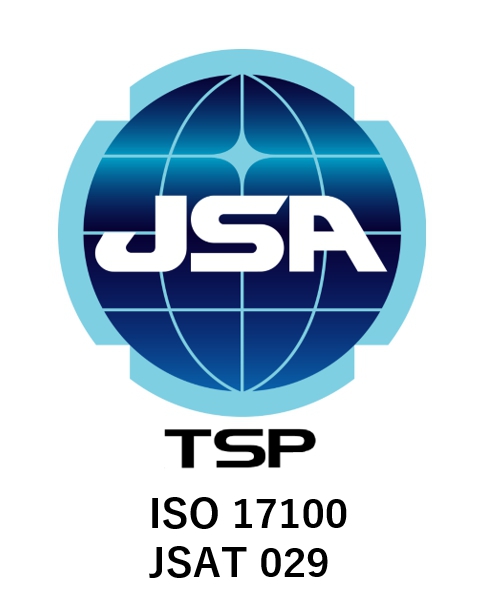
- Table of Contents
-
- 1. What is Localization?
- 1-1. The Difference Between Translation and Localization
- 1-2. Scope of Localization
- 1-3. Benefits of Localization
- 2. Points to Consider When Localizing
- 2-1. Differences in Grammar and Word Order
- 2-2. Distinction Between Honorifics and Polite Language
- 2-3. Understanding Cultural Nuances
- 3. How to Successfully Achieve Localization
- 3-1. Hire Professional Translators
- 3-2. Utilizing an Experienced Localization Company
- 3-3. Localization Achievements and Areas of Expertise of Human Science
1. What is Localization?
"Localization" refers to the process of optimizing products, services, content, and documents to suit specific regions or cultures. By adapting to cultural norms, customs, religions, laws, currencies, date formats, and more, it becomes easier to penetrate the local market and provide a better experience for the people in that region.
1-1. The Difference Between Translation and Localization
You may think that "translation" and "localization" are the same, but they are actually quite different. Translation focuses on converting text from one language to another. The main goal is to accurately convey the meaning and intent of the original text, with an emphasis on grammatical and vocabulary accuracy.
On the other hand, localization requires not just translation, but also consideration of various elements such as the culture and customs of the users who will see the translation. For example, in advertising campaigns, it is necessary to understand local humor and social taboos and express them appropriately.
Therefore, translation is a part of localization, but localization involves a broader range of adaptation work and is an essential element for success in the target market.
1-2. Scope of Localization
The scope of localization is extensive, but mainly includes the following.
Website: Localization includes designing for local users and implementing SEO measures to ensure that important messages are accurately conveyed.
Product Documentation and Manuals: Standardizing the notation of proper nouns, numbers, and units for each region will lead to greater ease of understanding.
Application: It is necessary to adjust the character set, date, number separator, currency, character direction, etc. to match the region and language.
Advertising: It is necessary to adjust videos and social network ads to match the local users and to avoid cultural taboos.
1-3. Benefits of Localization
Localization is an essential element for companies to succeed in the global market, and it offers benefits such as the following.
Market Share Expansion: By adapting products and services to local cultures and customs, acceptance by consumers improves. Additionally, by aligning with local needs and preferences, it is possible to differentiate from competitors in new markets.
Improvement of Brand Image: By adapting products and services to local cultures and customs, it becomes easier for consumers to accept them. This enhances the brand's reliability and approachability, leading to higher customer satisfaction. Additionally, by respecting and appropriately reflecting local cultures and values, companies can demonstrate their global social responsibility, which improves brand favorability.
Expansion of Sales and Business Growth: Localization directly impacts the expansion of sales and overall business growth. When products and services are familiar and relevant to the local audience, the likelihood of increased conversions and sales rises. Additionally, entering new markets through effective localization can create opportunities for expansion and new revenue sources.
2. Points to Consider When Localizing
Localization offers significant benefits, and we encourage companies to adopt it. However, there are several important points to consider for successful localization.
2-1. Differences in Grammar and Word Order
In localization, differences in grammar and word order are important points. Each language has its own grammatical structure, and simply translating directly may not convey the meaning accurately. For example, in English, the basic order is subject-verb-object, while in Japanese, the common order is subject-object-verb. Ignoring such differences when translating can result in unnatural sentences and may lead to misunderstandings for the target users.
Understanding grammar and word order correctly and expressing them naturally is directly linked to the success of localization. Especially in the case of technical terms and complex sentence structures, it is essential to grasp the subtle differences between languages and convey them accurately.
2-2. Distinction Between Honorifics and Polite Language
In Japanese, there are honorifics and polite language, and the impression given to the other party changes significantly depending on how they are used. Honorifics are expressions that show respect to the other person, while polite language is used to show consideration for the other person. During localization, it is necessary to understand how to express respect in the target culture and society and to use them appropriately.
Particularly in formal situations such as business documents, product documentation, and product manuals, it is essential to pay close attention to the use of honorifics and polite language. The incorrect use of honorifics can create an impression of rudeness, making it a very important point.
2-3. Understanding Cultural Nuances
Understanding cultural nuances is one of the most important elements in localization. Each culture has its own values, customs, and implicit understandings, and translations that ignore these can lead to misunderstandings or cause discomfort. For example, an expression that is accepted as humor in one country may be perceived as an insult in another. Successful localization requires a deep understanding of the cultural background and history of the target market, as well as expressions that reflect those nuances. By accurately capturing cultural nuances, products and services become more easily accepted in that market.
3. How to Successfully Achieve Localization
Finally, let's summarize the key points for successfully achieving localization.
3-1. Hire Professional Translators
Hiring translators with specialized knowledge is essential for the success of localization. Translators who are familiar with specific fields can accurately understand industry-specific terminology and context, and localize it in a natural way. For example, in fields such as IT or healthcare, where specialized knowledge is required, it is recommended to hire specialized translators rather than general translators.
Professional translators not only convert languages but also understand the cultural background and business practices of the target market, enabling more effective localization. This allows products and services to be more naturally accepted in the local market.
3-2. Utilizing an Experienced Localization Company
Utilizing an experienced localization company is also an important strategy for successfully achieving localization. Localization companies excel in managing multilingual projects and are proficient in quality control and adherence to deadlines. Additionally, localization companies have extensive experience in various industries, allowing them to handle localization across a wide range of fields.
By utilizing a localization company, you can efficiently leverage internal resources while achieving high-quality localization. Additionally, by taking advantage of the localization company's network, it is also possible to simultaneously address multiple languages and markets.
3-3. Localization Achievements and Areas of Expertise of Human Science
Human Science, a localization vendor in Japan, boasts a track record of completing numerous localization projects in Japan and overseas. In particular, it has strengths in localization into Japanese in highly specialized fields such as IT, healthcare, and manufacturing, and provides translations that leverage its expertise in each of these fields.
Human Science has received many requests for localization of highly specialized content such as big data analysis software and machine learning, and has earned a reputation for its high quality and responsiveness. In addition to documents and help content, we have a wealth of experience in localization of content types that require a high level of fluency and readability, such as websites, videos, e-learning, and white papers. In addition to localization, we also undertake a wide range of annotation-related tasks required for tasks such as generative AI model training.
If you have any concerns or interests, please feel free to contact us.
Problem Solving! Localization of e-Learning Content for Engineers

























